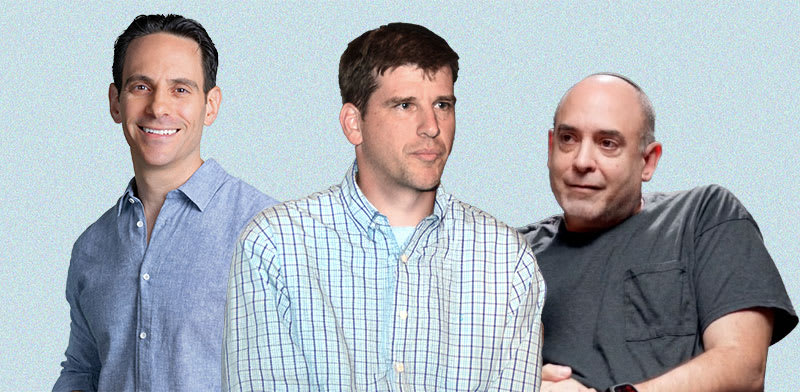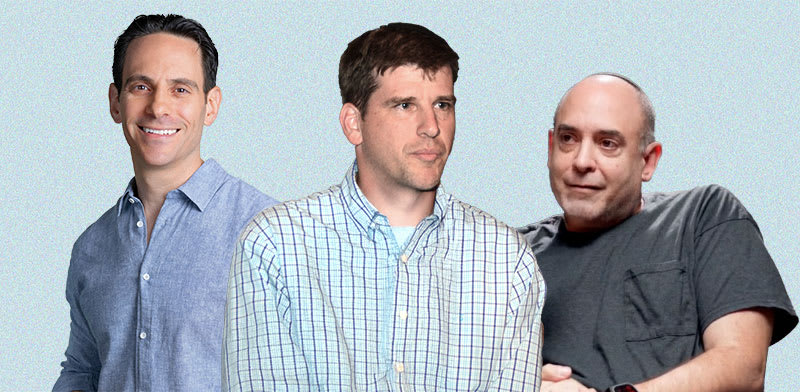

US investor Sender Cohen, who has managed the investments of billionaires like George Soros and Stanley Druckenmiller, is currently raising $800 million to set up private research labs in Israel called Nevo Labs. The venture also involves Aleph venture capital fund founding partner Michael Eisenberg and Bessemer Venture partners partner Adam Fisher, who are helping shape the program and find investors.
Cohen revealed the venture on Eisenberg’s “Invested” podcast, and said that the establishment of the research lab was inspired by AT&T’s Bell Labs – an institution that does not exist in Israel and serves as a scientific research institute serving as a commercial company. In these labs, scientists from various fields try to develop new technologies that can be commercialized within a few years, unlike in academic labs, where commercialization is not necessarily the first goal.
In a post published by Eisenberg on Sunday, he said that he had held a large fundraising event in New York where together with Cohen he had tried to persuade 100 investors for family wealth offices to invest in Israel.
Raising capital is challenging
In the first stage, Nevo Labs will focus on three key research areas: artificial intelligence, quantum computing, and synthetic biology. “In Israel, there is a large industry that develops a lot in the short term, but there is no commercial research here for 5-15 years,” explains Cohen.
One of the main goals of establishing the laboratories is to enable the return of brains to Israel. “Nine out of every ten doctoral students do their post-doc internship in the US, and then stay there, not because they want to leave the country, but because academia here is small and does not have work to offer everyone,” says Cohen. In Israel, those with a doctorate in exact sciences are absorbed into the tech industry in regular development positions, thus not contributing to long-term scientific development. “In the US, on the other hand, many academics prefer to work in private research institutions over university institutions. The reason for this lies in the administrative flexibility and the fact that there is less bureaucracy there.”
However, the challenge of raising capital for academic research labs is many times greater than raising funding for tech companies, as the return to investors may only come after many years. “It requires more patience but is also very rewarding,” he says.
Establishing research laboratories requires a lot of capital, and Cohen used his financial skills and connections from recent years to raise funds. Cohen managed the investment fund and research division of billionaire George Soros and later served as president of his hedge fund. He later served as investment manager of the Shusterman Fund in New York. “Globes” has learned that the investors who provided Cohen with an initial commitment includeStanley Druckenmiller, with whom he has worked in the past.
Cohen describes himself as being very connected to businesspeople and government officials in the UAE and Saudi Arabia, and is believed to be trying to raise capital from the Gulf for the initiative. “The Israelis and the Saudis are interested in the same areas of research,” he said when asked about the possibilities for collaboration between the two countries.
The establishment of a fund for a laboratory is defined as a “private sovereign research fund,” because it usually relies on a single commercial company. Unlike a sovereign wealth fund, it will not be linked to the State of Israel, which is currently not open to investing hundreds of millions of dollars in long-term technology, so those involved are looking for private investors for the venture. However, a senior official familiar with the fund’s activities says that government capital could be raised for the fund if the government were interested.
Inspiration from Boston and the Gulf
A similar research institute called TII operates in Abu Dhabi, in which it is estimated that hundreds of millions of dollars have been invested in bringing scientists from countries such as France and Canada to develop new technologies in the fields of artificial intelligence, cybersecurity and life sciences. One of TII’s successes is the Falcon language model, which for a time was considered one of the most successful open-source language models, challenging even Meta’s Llama model.
Nevo Labs draws inspiration from a laboratory founded last year in Boston by Harvard scientists called Arena BioWorks, which provides its researchers with the freedom to work on a cure for any disease. When management identifies a possibility for developing a cure, it creates a new company based on it, alone or in partnership with other pharmaceutical companies.
No response has been forthcoming from either Eisenberg, Cohen or Fisher.
Published by Globes, Israel business news – en.globes.co.il – on February 10, 2025.
© Copyright of Globes Publisher Itonut (1983) Ltd., 2025.
https://res.cloudinary.com/globes/image/upload/t_800X392/v1739117422/COT_Pic/800_ihjnwo.jpg
2025-02-10 04:09:19